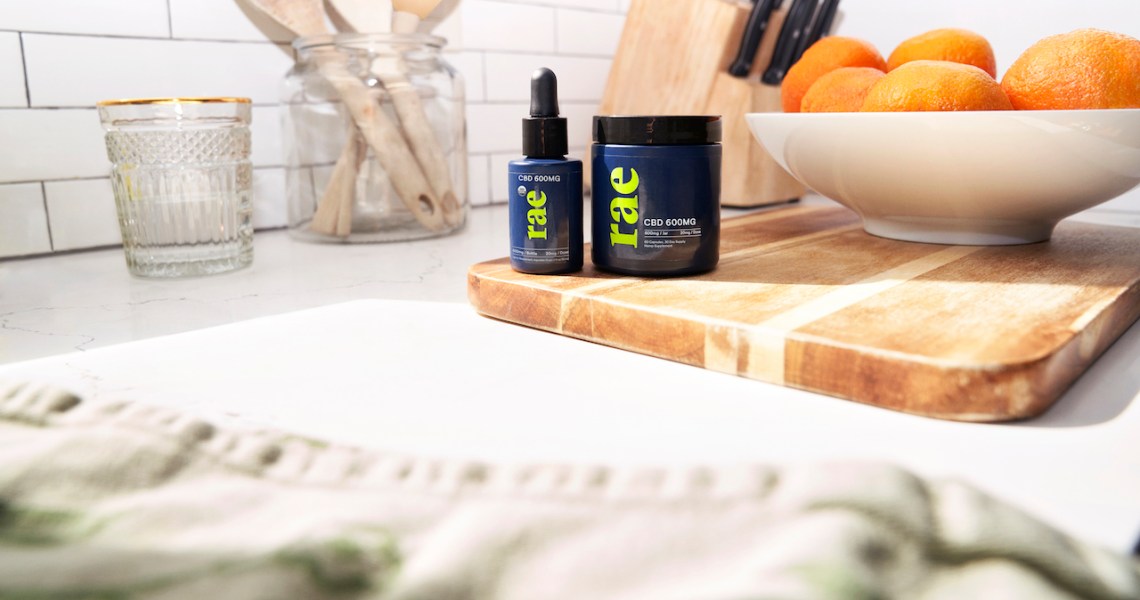Supplement brand Rae Wellness is the latest to enter the CBD category as the ingredient gains more mainstream traction, but major retailers have yet to get on board.
Today, the brand launches its first CBD products, 600-milligram capsules and drops for $39.99 sold DTC and via wellness e-tailer Standard Dose. The products were developed as a result of feedback via social media and email from its mostly female customer base, which founder and CEO Angie Tebbe said is a “younger, more diverse consumer” compared to the typical supplement user. Coinciding with the launch, Rae announced a CBD study it commissioned from product validation startup Radicle Science. The new products are being launched at a time when the brand’s biggest retail partners like Target and Amazon have yet to open their doors to CBD.
CBD has “been in the back of our minds since we started the company,” said Tebbe, who chose this timing for the launch because “consumers are ready” to use it.
Consumer demand for CBD remains ahead of major retailers and regulations, as the legality of CBD varies from state to state.
“A lot of different retailers have a lot to work through, as it pertains to this category,” said Tebbe, who was an executive at Target before launching the brand. “A whole host of them are really thinking about the right category, the right products and the right time, and how [to launch CBD].”
According to Tebbe, Rae had 1 million customers in 2020 and is “on target” for triple-digit year-over-year growth in 2021. With this growth, it has tripled its staff from the team’s pre-pandemic size of seven employees.
The brand sponsored a study in partnership with Radicle Science on the effects of CBD on women and plans to release comprehensive data on the findings in the fall. According to Tebbe, the study has so far found that consuming “as little as 15 milligrams a day of CBD product led to significant reductions of anxiety within 30 days of daily use,” and sustained results for 60 days.
“There was just a lack of evidence; there was a lack of studies, specifically around underrepresented folks like women, so we needed to create that to then have the confidence to move into the category,” said Tebbe. “A lot of women seek relief from anxiety. One of the ways that they do that is turning to CBD for the first time.”
The underrepresentation of women in scientific studies with its new research is the focus of the brand’s organic Instagram content, which currently promotes the CBD launch by directing users to its site. It does not mention “CBD” directly–Instagram currently does not allow paid CBD advertising or sales of CBD through its checkout.
When it comes to more mainstream retailer adoption of CBD, Tebbe is optimistic, expecting the product to be allowed into major retailers in the future. With regard to retail adoption, “I don’t think it’s an ‘if,’ I think it’s a ‘when,’” she said.




